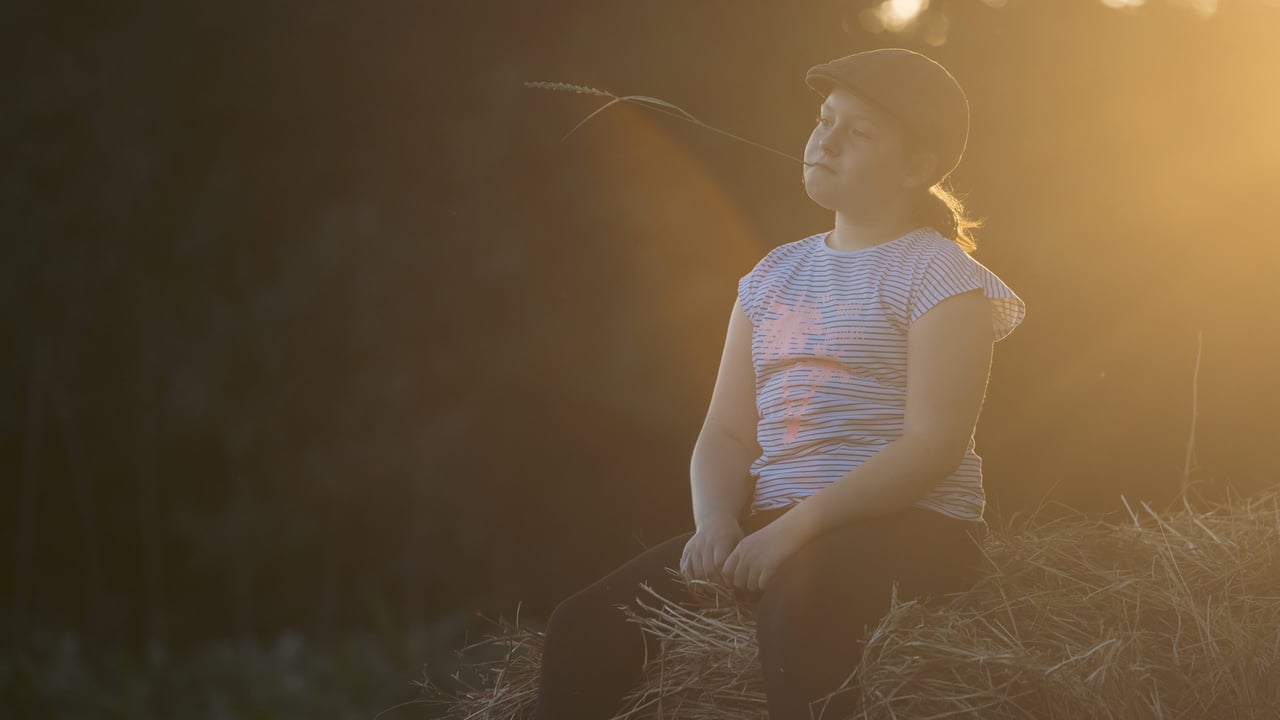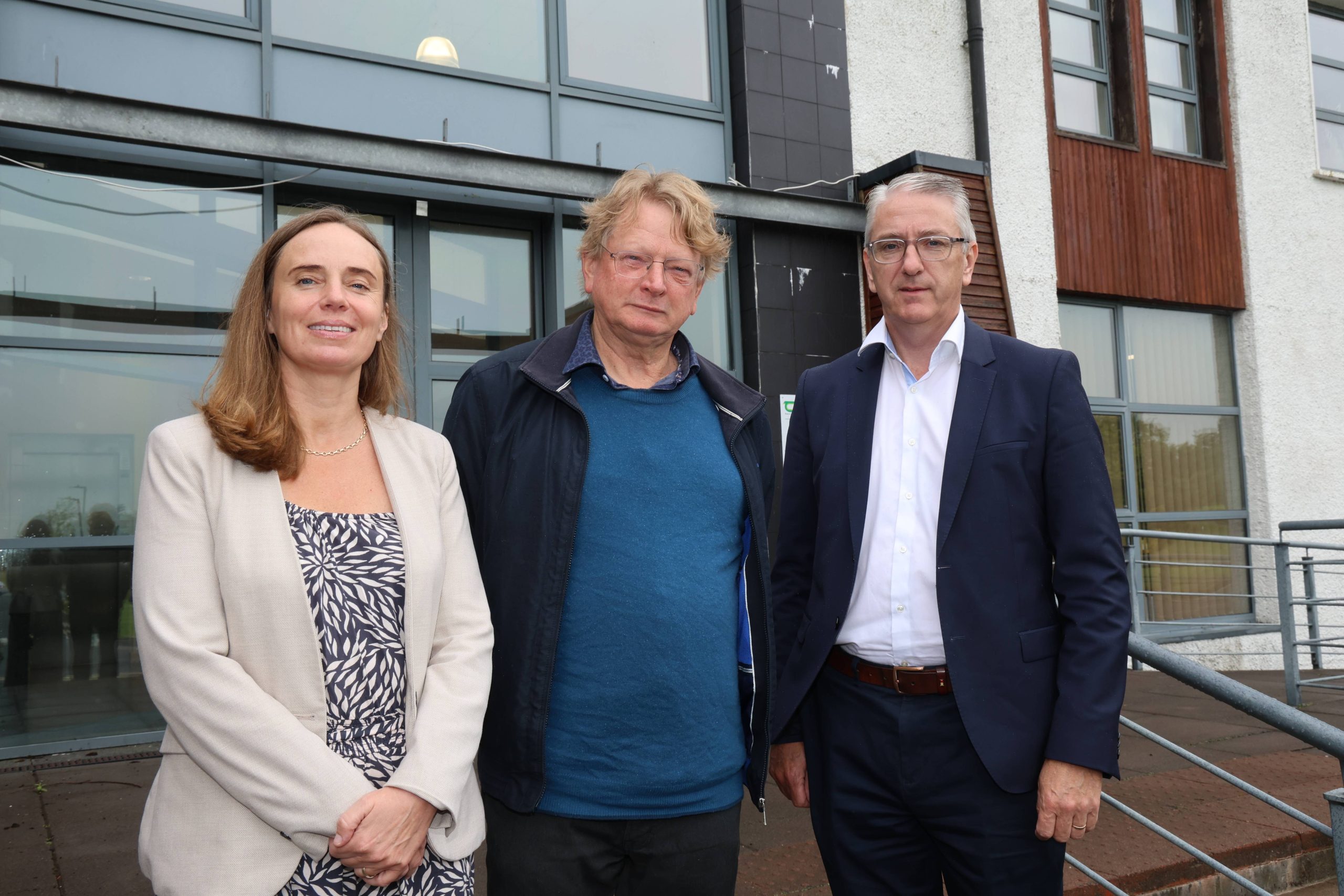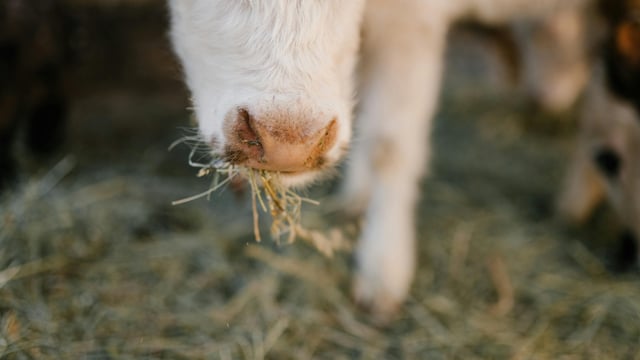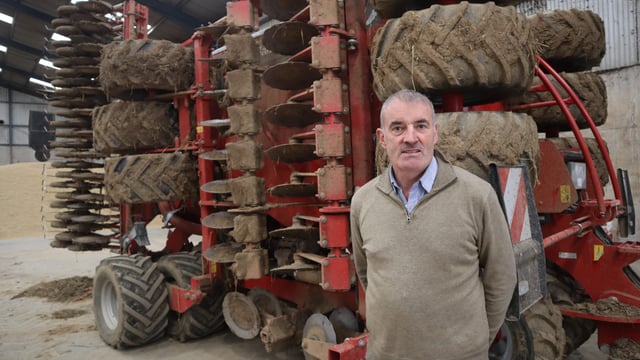Is there a way to make farming 'more attractive' to the next generation?
One of the big questions that Europe is grappling with at the moment is how to make farming "more attractive" to younger people.
We have had the Vision for Agriculture and Food, from the European Commission, which it claims is "an ambitious roadmap on the future of farming and food in Europe".
In it the commission promises to set out a generational renewal strategy in 2025, which will include "recommendations on measures needed both at the EU and national/regional level to address the barriers to young and new people" entering farming.
The commission also plans to present a proposal for the future Common Agricultural Policy (CAP) which will include measures to support young farmers.
Earlier this month the European Commissioner for Agriculture, Christophe Hansen, hosted a youth policy dialogue with young farmers in Brussels - all participants were below 40 years old in line with the age limit to qualify as a young farmer.
One of the key discussions was the current profile and make up of the farming population in Europe.
The dialogue focused on the needs, aspirations, and barriers faced by young people entering or remaining in the farming sector and the commissioner was keen to stress that he is listening to young farmers and taking on board their concerns.
Closer to home the Minister for Agriculture, Food and the Marine, Martin Heydon, has said that an independent commission report on generational renewal in farming here is set to be released before the end of next month.
The commission, which was established last October, 2024, has according to Minister Heydon adopted an “objective, evidence-based approach to examining all the complex factors involved”.
Earlier this year the minister also awarded over €1.5 million for three new European Innovation Partnership (EIP) projects on the theme of generational renewal.
These projects include:
- Farm Forward: Connecting Generations and Farming for the Future - which is a partnership between Ballyhoura Development; Teagasc; Dairygold; some farm organisations; and Cork and Limerick county councils, among others;
- Renewal in Agriculture through Intergenerational Support & Empowerment’ (RAISE), - operated by the Sustainable Agriculture Advisory Council; the Irish Co-operative Organisation Society (ICOS); Teagasc; Aurivo; and Dairygold, among others;
- Using Share Farming to Facilitate Generational Renewal - which is operated by the Land Mobility Service; Succession Ireland; Teagasc; Lakeland Dairies; and Macra, among others.
But while discussions at home and further afield continue on the theme of generational renewal in farming a leading rural sociologist was in Ireland this week to share what he believes needs to be done to make agriculture "more attractive".
Professor Frank Vanclay from the University of Groningen shared a "framework" which offers concrete guidance for designing CAP measures, extension services, and innovation programmes which he believes could reverse the trend of agricultural decline and "youth disengagement" from farming.
Speaking at Teagasc's Mellows Campus Prof. Vanclay said the framework revolves around four key principles including:
- Making farming attractive beyond economics;
- Addressing structural disadvantages;
- Farmer-led innovation systems;
- Simplifying policy implementation.
Farming and the next generation
According to Prof. Vanclay getting young people into agriculture requires "addressing emotional, cultural and identity" aspects of farming and not just economic incentives.
“Sustainability means staying on the farm", he said and policies should take on board the "deep desire of farmers" to hand their farm over to their children - but at the same time there needs to be policies that appeal to women farmers and non-traditional farm workers.
The leading rural sociologist also warned that complex and inflexible programmes reduce farmer trust and participation. He has called for "simpler, context-sensitive programmes co-designed with farmers to enhance both legitimacy and effectiveness".
He also cautioned that while crucial discussions are underway in Ireland and across Europe to encourage younger people to go into farming and to stick with it, there is no "one-size-fits-all" approach to this issue.
Instead Prof. Vanclay said "differentiated support tailored to specific farming styles and local contexts" is crucial to attract the next generation of farmers whether this is in Ireland or other European countries.







